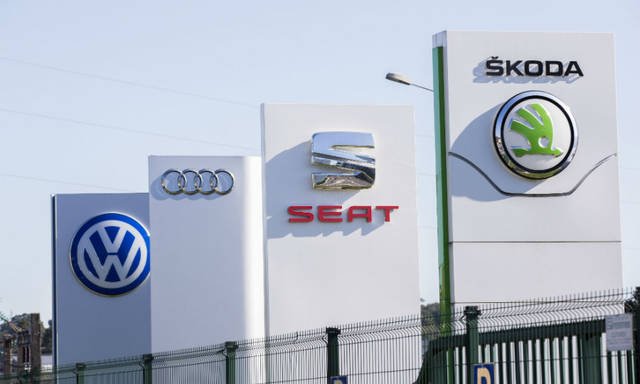Volkswagen Calls For Delay In Euro 7 Emissions Over Concerns About Cost

Volkswagen is pushing the European Commission to delay the implementation of the Euro 7 emissions rules by about a year until the fall of 2026, according to Automotive News Europe citing a position paper from the automaker. The company argues that if the regulations go into effect in July 2025 then it would have to halt the production of several models. In addition, the business wants to push back the orders regarding brake dust and tire wear particulates.
"Several years of lead time are needed," Volkswagen said in its position paper said. The company claims that a lack of suppliers for components that meet the regulations is part of the reason for wanting to delay the Euro 7 rules. Costs are another concern.
The EU recently reached an agreement with Germany that removed the planned combustion-engine ban in 2035. Instead, ICE-powered vehicles must run only on synthetic e-fuel by that time.
Although, Volkswagen brand boss Thomas Schäfer came out somewhat against e-fuel. He called the debate "unnecessary noise" and said that the era of the combustion engine was "over anyway." By 2030, the brand intends for 80 percent of annual sales to be EVs.
In March 2023, Volkswagen announced that it was building a battery factory in Spain. Cell production begins in 2026, and the site should make 40 giga-watt hours of packs each year initially. There's room to expand to 60 GWh annually.
In North America, Volkswagen Group is building a battery factory in St. Thomas, Ontario, Canada. The company is not yet detailing the site's manufacturing capacity. Production should begin in 2027.
In the US, Volkswagen Group is a $2 billion building a factory specifically for the new Scout Motors brand near Columbia, South Carolina. Construction begins in mid-2023, and production begins before the end of 2026. The plant has a planned yearly capacity of 200,000 vehicles.
Volkswagen also intends to become a battery supplier to other automakers. The company wants its PowerCo division to supply half of the firm's own packs and sell the rest to other corporations, like Ford.
Related News
